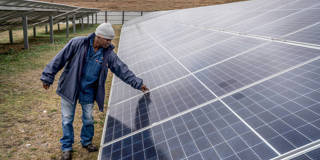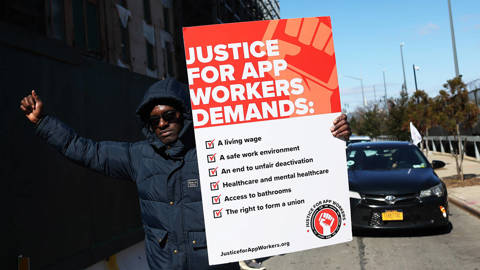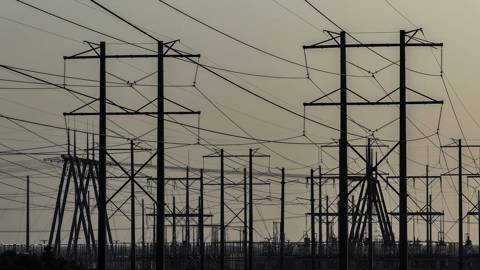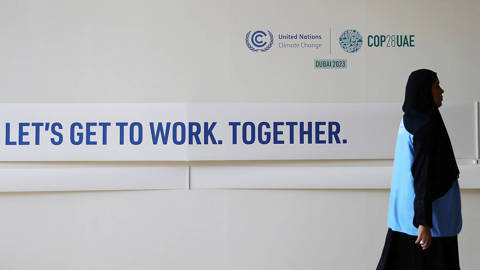Looking ahead to the African Climate Action Summit in September, governments and their international partners must commit to working toward universal energy access, accelerating the deployment of renewables, and boosting investment in green industries on the continent. Otherwise, Africa may be left out of the clean-energy future.
NAIROBI/PARIS – Many people associate technologies like solar and wind power with efforts to tackle climate change. But for the world’s most vulnerable populations, they are much more than a clean-energy solution. By creating jobs, improving health, and increasing social mobility and gender equality, they build a path to a more prosperous future.
This is especially true for Africa. In terms of energy sources, the continent has immense potential that has gone largely untapped. Despite being home to 60% of the best solar resources globally, for example, Africa has roughly the same installed solar PV capacity as Belgium, a small country not known for its sunshine. There is also great potential for hydro, wind, and geothermal power in many African countries, and these energy sources can play an important role in diversifying and securing electricity supply. Leveraging the continent’s natural endowments responsibly will be essential to its development.
The economic and social benefits of renewable energy could be huge. Throughout Africa, hundreds of millions of people still lack access to electricity – a major impediment to gaining an education, finding regular employment, and contributing to a productive economy. The global energy crisis has only exacerbated the situation, as mounting debt problems and rapid price increases have made it even harder to reach the United Nations’ goal of universal energy access by 2030. Renewables are vital to address this, with solar, in particular, set to become the cheapest source of electricity nearly everywhere in Africa by 2030.
Electricity is not the only energy concern on the continent. Four out of five people in Sub-Saharan Africa still cook with wood and biomass, which, when burned, produces harmful smoke. In fact, nearly a half-million premature deaths per year in Sub-Saharan Africa are linked to household air pollution resulting from the lack of access to clean cooking facilities. This disproportionately affects women and children, not only in terms of health but also in lost time and lack of opportunity. Clean cooking solutions could mean more children in the classroom, rather than out collecting firewood, and more women with the time to find work or start a business, which could provide a route to financial independence. The use of clean cooking fuels also reduces greenhouse-gas emissions.
Addressing Africa’s energy challenges requires meaningful investment from both the public and private sector. Currently, only about 3% of energy investments worldwide are made in Africa, even though the continent is home to 17% of the world’s population (over 1.2 billion people) – a figure that is expected to double in the next 30 years. International financial institutions should step up to mobilize private capital, acting as first movers to absorb risk and protect investments. Doing so would help promote projects that support vulnerable populations, lay the groundwork for sustainable economic growth, and ensure that Africa becomes an attractive destination for investment.
Investments in resilient and efficient power grids will be critical to meeting the growing energy needs of densely populated urban centers and growing industries. At the same time, off-grid systems powered by solar and batteries have already revolutionized the way remote towns gain access to electricity. Both centralized and decentralized power systems will be important for expanding electricity access to all Africans.
Building reliable, modern energy systems can also help Africa develop its industrial base and manufacturing capacity, including for clean-energy technologies, whose market is set to grow rapidly this decade. The continent is already a major player in producing the raw materials needed for clean-energy technologies and is home to more than 40% of global reserves of cobalt, manganese, and platinum – key minerals for batteries and hydrogen fuel-cells. These resources must be extracted and used in a way that benefits local populations and respects environmental and social standards. Beyond mining, African economies must focus on strengthening their refining and manufacturing capacity, as well as on constructing their export infrastructure. This will require a well-equipped labor force of trained engineers, technicians, and scientists.
As is well known, Africa has contributed the least to global greenhouse-gas emissions and yet suffers some of the worst effects of climate change. To help ensure that it has an opportunity to play a central role in the emerging clean-energy economy, we are calling for a New Energy Pact at the African Climate Action Summit in Nairobi this September and ahead of the United Nations Climate Change Conference (COP28) in Dubai later this year.
The pact aims to foster deeper collaboration between African countries and their international partners to accelerate the continent’s unacceptably slow progress toward universal energy access; to increase investments in renewables and energy-efficiency improvements in Africa; and to lay the groundwork for African countries to contribute to emerging clean-energy supply chains. Success would require African governments to work with international partners to develop more ambitious plans to finance and realize energy projects in Africa while addressing governance, environmental, and labor issues.
Done right, a New Energy Pact can generate lasting benefits for Africa, such as greater energy security and improved living standards, and help the world reach its climate goals. If Africa is left out of the clean-energy future, the entire planet stands to suffer.











NAIROBI/PARIS – Many people associate technologies like solar and wind power with efforts to tackle climate change. But for the world’s most vulnerable populations, they are much more than a clean-energy solution. By creating jobs, improving health, and increasing social mobility and gender equality, they build a path to a more prosperous future.
This is especially true for Africa. In terms of energy sources, the continent has immense potential that has gone largely untapped. Despite being home to 60% of the best solar resources globally, for example, Africa has roughly the same installed solar PV capacity as Belgium, a small country not known for its sunshine. There is also great potential for hydro, wind, and geothermal power in many African countries, and these energy sources can play an important role in diversifying and securing electricity supply. Leveraging the continent’s natural endowments responsibly will be essential to its development.
The economic and social benefits of renewable energy could be huge. Throughout Africa, hundreds of millions of people still lack access to electricity – a major impediment to gaining an education, finding regular employment, and contributing to a productive economy. The global energy crisis has only exacerbated the situation, as mounting debt problems and rapid price increases have made it even harder to reach the United Nations’ goal of universal energy access by 2030. Renewables are vital to address this, with solar, in particular, set to become the cheapest source of electricity nearly everywhere in Africa by 2030.
Electricity is not the only energy concern on the continent. Four out of five people in Sub-Saharan Africa still cook with wood and biomass, which, when burned, produces harmful smoke. In fact, nearly a half-million premature deaths per year in Sub-Saharan Africa are linked to household air pollution resulting from the lack of access to clean cooking facilities. This disproportionately affects women and children, not only in terms of health but also in lost time and lack of opportunity. Clean cooking solutions could mean more children in the classroom, rather than out collecting firewood, and more women with the time to find work or start a business, which could provide a route to financial independence. The use of clean cooking fuels also reduces greenhouse-gas emissions.
Addressing Africa’s energy challenges requires meaningful investment from both the public and private sector. Currently, only about 3% of energy investments worldwide are made in Africa, even though the continent is home to 17% of the world’s population (over 1.2 billion people) – a figure that is expected to double in the next 30 years. International financial institutions should step up to mobilize private capital, acting as first movers to absorb risk and protect investments. Doing so would help promote projects that support vulnerable populations, lay the groundwork for sustainable economic growth, and ensure that Africa becomes an attractive destination for investment.
Investments in resilient and efficient power grids will be critical to meeting the growing energy needs of densely populated urban centers and growing industries. At the same time, off-grid systems powered by solar and batteries have already revolutionized the way remote towns gain access to electricity. Both centralized and decentralized power systems will be important for expanding electricity access to all Africans.
SPRING SALE: Save 40% on all new Digital or Digital Plus subscriptions
Subscribe now to gain greater access to Project Syndicate – including every commentary and our entire On Point suite of subscriber-exclusive content – starting at just $49.99.
Subscribe Now
Building reliable, modern energy systems can also help Africa develop its industrial base and manufacturing capacity, including for clean-energy technologies, whose market is set to grow rapidly this decade. The continent is already a major player in producing the raw materials needed for clean-energy technologies and is home to more than 40% of global reserves of cobalt, manganese, and platinum – key minerals for batteries and hydrogen fuel-cells. These resources must be extracted and used in a way that benefits local populations and respects environmental and social standards. Beyond mining, African economies must focus on strengthening their refining and manufacturing capacity, as well as on constructing their export infrastructure. This will require a well-equipped labor force of trained engineers, technicians, and scientists.
As is well known, Africa has contributed the least to global greenhouse-gas emissions and yet suffers some of the worst effects of climate change. To help ensure that it has an opportunity to play a central role in the emerging clean-energy economy, we are calling for a New Energy Pact at the African Climate Action Summit in Nairobi this September and ahead of the United Nations Climate Change Conference (COP28) in Dubai later this year.
The pact aims to foster deeper collaboration between African countries and their international partners to accelerate the continent’s unacceptably slow progress toward universal energy access; to increase investments in renewables and energy-efficiency improvements in Africa; and to lay the groundwork for African countries to contribute to emerging clean-energy supply chains. Success would require African governments to work with international partners to develop more ambitious plans to finance and realize energy projects in Africa while addressing governance, environmental, and labor issues.
Done right, a New Energy Pact can generate lasting benefits for Africa, such as greater energy security and improved living standards, and help the world reach its climate goals. If Africa is left out of the clean-energy future, the entire planet stands to suffer.